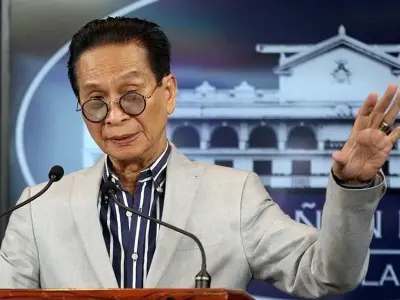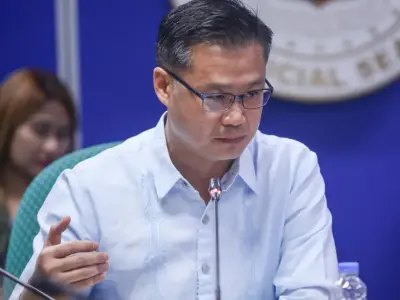
THE House of Representatives, under the leadership of Speaker Ferdinand Martin G. Romualdez, has achieved record-breaking legislative productivity in the 19th Congress, setting a high bar for future lawmakers and cementing its reputation as a chamber of action and results.
Spanning the period from July 25, 2022 to December 27, 2024, the chamber led by Speaker Romualdez filed a staggering 13,454 measures, of which 1,368 were approved, including 166 that became Republic Acts—73 national laws and 93 local laws.
“This Congress has set a new standard for productivity and purpose. Our collective achievements reflect our deep sense of duty to the Filipino people, ensuring that every measure we craft, debate, and pass uplifts lives, strengthens communities, and builds a resilient nation,” Speaker Romualdez said.
The legislative milestones are underpinned by numbers that speak volumes about the efficiency and focus of the 307-strong legislative chamber.
Out of the 13,454 measures filed, 11,241 were bills, 2,212 were resolutions, and one petition. Also, 1,319 committee reports were submitted during the period.
Across 178 session days, the chamber processed 4,760 measures, averaging 12 measures per session day.
In addition to passing laws, the House has shown a strong commitment to accountability. It adopted findings and recommendations from nine committee reports on inquiries in aid of legislation, reinforcing its role as a guardian of public trust.
“We are not just legislators; we are guardians of public trust. Every inquiry conducted, every recommendation adopted, ensures that governance is rooted in integrity and service to the people,” Speaker Romualdez said.
The House’s collaboration with the Senate has also been a key factor in its success. Through effective conference committees and the concurrence of amendments, both chambers ensured that measures were refined and tailored for practical implementation.
“Our synergy with the Senate ensures that the laws we pass are practical, implementable, and responsive to the needs of the people,” the Speaker pointed out.
As the 19th Congress approaches its final stretch, Speaker Romualdez reaffirmed the House’s commitment to sustaining its legislative momentum.
“This Congress will be remembered as one of decisive action, unwavering unity, and transformative legislation,” the House chief stressed.
“We will not rest until every Filipino feels the impact of the progress we are creating—until we achieve a nation that is truly inclusive and empowered,” he added.
Under Speaker Romualdez’s leadership, the House has established itself as a pillar of integrity, innovation, and results. Its record-breaking achievements are not just a milestone but a legacy—one that underscores the vital role of legislation in shaping a stronger, more inclusive Philippines.
House leaders to probe social media misinformation
SEVEN leaders of the House of Representatives have proposed a congressional inquiry into what they described as “rampant posting of false and malicious content in social media platforms, while safeguarding freedom of speech and ensuring digital safety.”
The proposal is in a resolution authored by Senior Deputy Speaker and Pampanga 3rd District Rep. Aurelio “Dong” Gonzales Jr., Deputy Speaker and Quezon Rep. David “Jay-Jay” Suarez, Majority Leader Manuel Jose Dalipe, Minority Leader Marcelino Libanan and Reps. Robert Ace Barbers of Surigao del Norte, Bienvenido Abante Jr. of Manila, and Joseph Stephen Paduano of Abang Lingkod Party-list.
The seven suggested that the investigation be conducted jointly by the House Committees on Public Order and Safety, on Information and Communications Technology, and on Public Information.
In their resolution, they said the “rapid growth of social media platforms has allowed the dissemination of content that can mislead the public, damage individual reputations, arose trust in institutions, and disrupt public discourse.”
“False and malicious content has also been exploited by unscrupulous individuals to promote scams, cyberbullying and other activities that negatively impact public safety and order,” they said in the resolution adopted by the House of Representatives.
“The balance between ensuring digital safety and protecting constitutional freedoms, particularly freedom of speech and expression, must be maintained, as these are cornerstones of democracy,” they said.
They added that “there is a pressing need for a collaborative approach among relevant committees to identify gaps in existing laws and recommend measures to combat harmful content while upholding the rights of individuals to participate in free and open discourse.”
The House leaders pointed out that due to the interconnected nature of technological, informational and public safety concerns, it is imperative for the three committees to conduct a joint inquiry in aid of legislation on the impact of false and malicious content in social media.
They noted that Republic Act (RA) No. 10175, or the Cybercrime Prevention Act of 2012, was enacted “to address the misuse, abuse and exploitation of information and communication technology and to combat content-related offenses such as the deliberate spread of false and malicious information that causes harm to individuals and the public.”
Gonzales and his colleagues vowed to make the deliberations, findings and recommendations of the joint inquiry available to the public “to promote transparency and foster trust in the process.”
The proposed inquiry would be guided by the following principles and goals:
– Uphold freedom of speech. Ensure all proposed measures align with constitutional guarantees of freedom of speech and expression, and prevent any undue censorship.
– Identify gaps of legislation. Review existing laws, particularly RA No. 10175, to identify gaps and recommend amendments that address the challenges posed by emerging technologies and harmful online content.
– Enhance social media platform accountability. Suggest proposals to improve transparency and accountability mechanisms for social media platforms, including enhanced content moderation, reporting systems and safeguards against misuse of algorithms.
– Combat cybercrimes. Recommend measures to address cybercrimes such as scams, cyberbullying and harassment arising from false and malicious online content.
– Protect digital safety and public trust. Propose public awareness campaigns to improve digital literacy and the ability of users to discern credible information and report harmful content.
– Include stakeholders on the process. Engage key stakeholders such as representatives from social media companies, cybersecurity experts, civil society organizations, and legal experts to ensure a balanced and effective approach to combating harmful content



